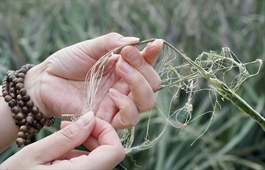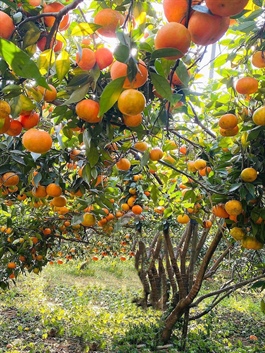Viet Nam expects official export of durian to China
Viet Nam expects official export of durian to China
Viet Nam has completed negotiations on quarantine and is waiting for a licence on the official export of durian to China.

This will help Vietnamese durian have sustainable consumption, according to the Ministry of Agriculture and Rural Development.
China is still the largest export market of Vietnamese durian, but this fruit product is mainly exported to China via border gates. Viet Nam has not yet been permitted to officially export durian fruit to the market.
Le Thanh Tung, deputy director of the Department of Crop Production, said that if there was no COVID-19 pandemic, the negotiations on official export for Vietnamese durian to China would have ended from 2020.
Before that, the two countries completed the final steps in the negotiation process and also prepared documents to sign the Protocol on the official export. However, everything had to stop because of COVID-19.
According to the ministry, to give a licence on official export for fruit to China, a mandatory requirement is that it must be from growing areas and packaging facilities granted codes by the ministry. Those codes are approved by the General Administration of Customs of China.
China is no longer an easy market. To promote sustainable agricultural product exports, the domestic agriculture sector needs to change the method of production and export transaction, and promote quality control for fruit, including durians.
Despite the COVID-19, China imported 809,000 tonnes of durian in the 11 months of 2021 worth US$4.13 billion, exceeding the figure of $2.3 billion in 2020. This is an attractive figure for Vietnamese businesses and gardeners.
According to Ngo Tuong Vy, deputy director of Chanh Thu Fruit Import Export Company, to receive the licence on official export, Vietnamese enterprises need to strictly comply with regulations on traceability, which is having the most problems in Viet Nam.
Besides investing in appropriate infrastructure, the development of large raw material areas and linkages with farmers are also being focused to meet those regulations.
To take export opportunities, localities are negotiating and building a dossier to be granted codes for durian growing areas.
In Lam Dong, farmers have prepared all conditions, including product quality, linkage, building material areas and traceability stamps. to ensure standards for export durian products.
Le Thi Anh Tuyet, deputy director of Binh Phuoc Department of Agriculture and Rural Development, said that the potential of exporting goods to China was still very large but to enter this market, the products must have a brand, a planting area code and a packing facility code.
Many local businesses and farmers had realised this potential and had been changing their mindset to develop a production chain.
The department focused on support for farmers in developing coded material areas to export fruits to China, she said.
Binh Phuoc Province's agriculture sector has a roadmap to have official export for local fruits to China, including green-skinned pomelo and durian. The province has more than 3,000 ha of durian.
The localities are gradually producing durian products having high quality, including high-tech durian production, and the building of raw material areas for durians, according to the ministry.
Durians developed under VietGAP with a traceability stamp are sure to have the licence of official export to China.
The ministry reported that Viet Nam's annual durian output is estimated at 600,000 tonnes.
Viet Nam now has about 50,000- 60,000ha of durian growing for official export, mainly in Tay Ninh, Binh Duong, Dong Nai, Binh Phuoc, Tien Giang and Dak Lak provinces.



























